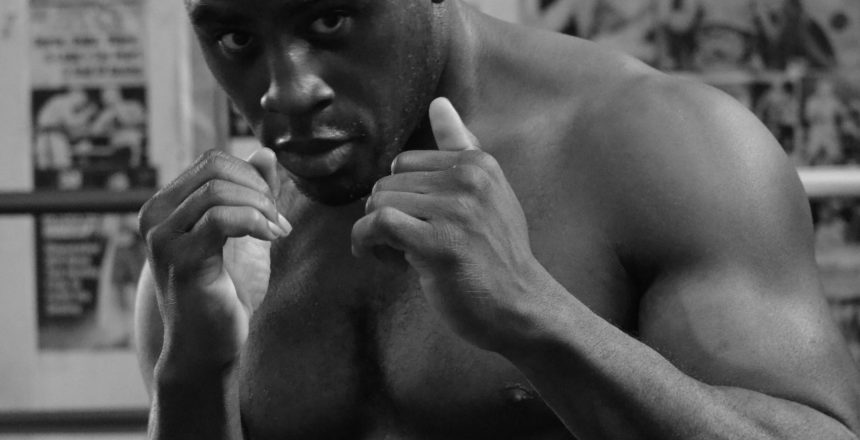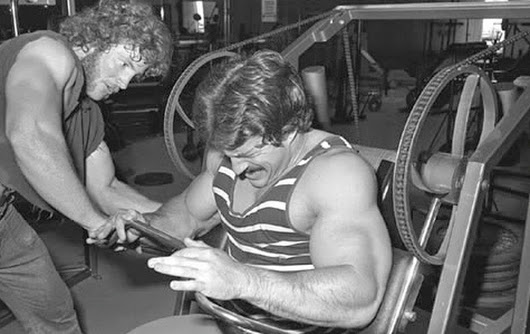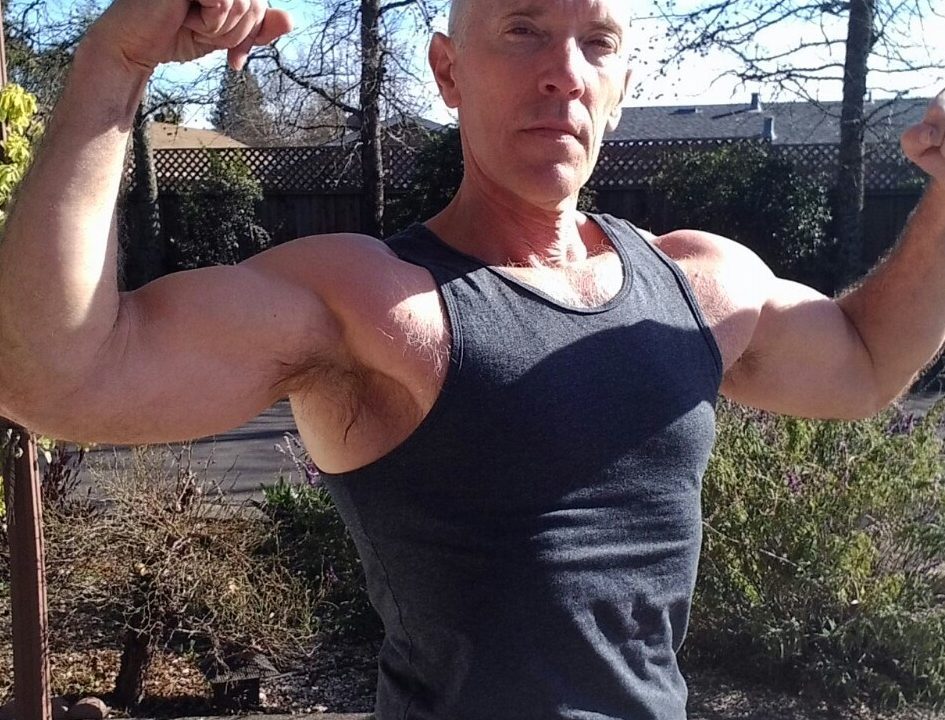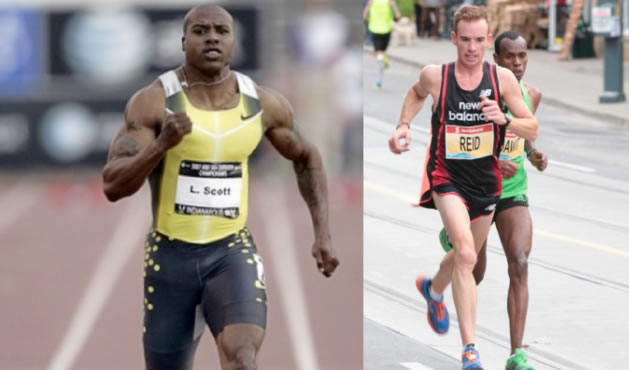Ed Latimore, 31, is a professional heavyweight boxer whom I’ve got to know through Twitter. He studies physics at Duquesne University in Pittsburgh, Pennsylvania, and is a member of the Army National Guard. On his website and on Twitter, he regularly drops a lot of wisdom on achievement and how your mindset can move you toward success. His website is EdLatimore.com.
Boxers are among the most fit of athletes; going 15 rounds against someone who’s trying to knock you out requires a superb physical condition. I’ve had a longstanding interest in boxing as the most basic and grueling sport there is, so with that in mind, Ed agreed to answer a few of my questions on how he trains and how his conditioning relates to boxing.
P.D. Mangan: Did you do any other athletic pursuit before you took up boxing? If so, how did that prepare you for boxing?
Ed Latimore: Well in high school I played football, ran track and swam. These sports did not prepare me specifically for boxing, but they did instill in me the sense of working hard to physically attain a goal. I’m not a great athlete naturally so I had to work hard to do very well in these activities. The same way that I learned to work for those sports is what I brought to boxing.
PDM: Do you consider yourself a natural athlete, or do you feel like your skills are hard won through training?
EL: Haha I am a very average athlete. I’m just lucky to be over 6 feet tall. Everything I have comes from hard training. I am very fortunate that it’s been that way because it makes me believe (erroneously or otherwise) that I can learn anything. I know that I am not capable of becoming world class in terms of pure athletic ability, but that just makes me wonder how else I can reach a world class level. This growth mentality keeps me training and practicing and constantly finding ways to develop and improve.
PDM: Do you perform any kind of strength training, either now or in the past? If so, how does that relate to boxing performance, and if not, why not?
EL: For a while I did not lift weights or do any strength training. This was because I’d been told that it would make me slower but I’ve since abandoned that idea. I do quite a bit of work for my legs and core. After my most recent fight, I am strongly considering expanding my efforts to my entire body. But in general, I work a lot on my lower body and my core.
PDM: What about cardiovascular conditioning? Do you do anything specifically for that, or does your boxing routine cover it?
EL: A good boxing routine, by itself is great cardiovascular training. On top of that, I do a lot of sprinting and distance running to prepare for long and hard fights. I like to do hill sprints and sprints around the track to stay in good cardiovascular shape.
PDM: Can you give us an idea of what you eat to stay in shape? Can you estimate percent carbs, protein, fat? Or, do you eat whatever you want? And do you care about processed or junk food vs whole, unprocessed? Any idea how many calories you eat in a day?
EL: I’m not very astute on my diet which is something I hope to improve. However, I do focus on the big wins. This means that I don’t consume alcohol. I keep sugars and processed carbs almost completely out of my diet. I eat a lot of eggs and meat and salads. I’ll probably never become an intense macro nutrient counter. Instead, I focus on the large wins and I believe this takes care of the rest.
PDM: Do you take any supplements?
EL: I take ZMA at night for sleeping. [ZMA is a proprietary combination of zinc, magnesium, and vitamin B6. – PDM] When I’m doing the heavy leg lifting and core sets, I take beta alanine and amino acids. I’ve also been taking Tongkat Ali to increase my testosterone as that will help me become stronger as well.
PDM: What made you take up boxing? Has it been a lifelong interest, or are you a latecomer to it?
EL: Boxing was something that I’d always been curious about. I wish I had started earlier than 23 haha. But that’s when I got in there and I’ve made the most of each opportunity presented to me. My interest in the sport was just that it was something I wanted to try. I don’t think I was much of a boxing fan before I started doing it but I have become since. I think I just wanted to do a sport. I have a hard time before normal.
PDM: Can you give us an idea of the relative merit of various forms of boxing conditioning – for example, jumping rope (do boxers still jump rope?), running, the speed bag, the heavy bag, sparring (or any I might have missed). How winded or fatigued do you get with any of these? Any that you omit or particularly like?
EL: So there’s something my coach always says to me and that’s that every piece of equipment in the gym has a purpose. So skipping rope is mostly for foot coordination. The speed bag and double end bag are for hand-eye coordination. The heavy bag is for conditioning and landing power punches. We have a slip bag to work on head movement. Those are the major pieces of equipment you’ll find in any gym.
PDM: How easy or difficult is it for you to maintain your weight? Do you have to eat to keep your weight up, diet to keep it down, or does it all just fall into place for you? (BTW, what is your weight?)
EL: I’m really fortunate that I’m a heavyweight. My natural weight seems to level out at about 219-220. I don’t need to do anything special for that. This is where I should end up if I’m eating correctly and training hard. I can make myself as light as 210 on a 24 hours fast and as heavy as 228 (that’s the heaviest I’ve been in 2 years).
PDM: How often do you train, and for how long – daily, for a few hours, etc?
EL: I’ve been training full time so I try to be in the gym everyday doing something. Whether that is running or just hitting the bag. There is something to do everyday and I try to find it. Except Sunday. I try to rest on Sunday. My actual boxing training usually goes for about 4 hours. There’s a warm up, and shadow boxing, and bag and pad work. Practicing over a long period of time is the best way for me to learn and it’s how I go about doing it.
PDM: My thanks to Ed for his willingness to entertain and answer my questions.
PS: For how I train, get my book Muscle Up.
PPS: Check out my Supplements Buying Guide for Men.
[thrive_link color=’blue’ link=’https://www.subscribepage.com/l6x7w5′ target=’_blank’ size=’medium’ align=’aligncenter’]Subscribe and get my free book on fat loss[/thrive_link]














3 Comments
Thanks Dennis, and thanks Ed. This was a great read. I would definitely be interested in more athlete interviews if you can swing them. From what I’ve seen, thoughtful nutrition and training discussion with professional athletes in mainstream sports is a pretty ignored topic.
Boxers are examples of obtainable physiques. If you want to be really lean and have as much muscle as possible, that’s what you’re going to look like. And that’s after a ton of hard work over a period of years.
I’m sure a large amount of them take PEDs, but it’s not just to cultivate as much mass as possible like bodybuilders or powerlifters (since too much mass is likely detrimental in boxing).